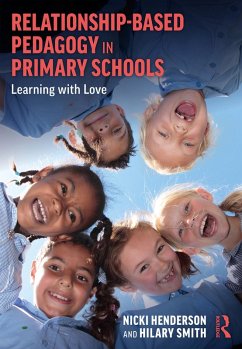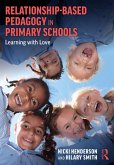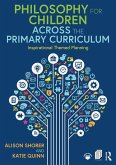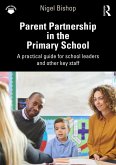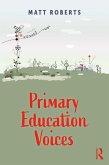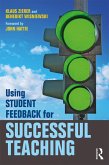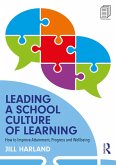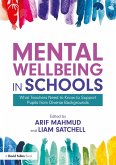Dieser Download kann aus rechtlichen Gründen nur mit Rechnungsadresse in A, B, BG, CY, CZ, D, DK, EW, E, FIN, F, GR, HR, H, IRL, I, LT, L, LR, M, NL, PL, P, R, S, SLO, SK ausgeliefert werden.
Stephen Ward, Emeritus Professor of Education, Bath Spa University, UK
"Every child has a right to a good education but school and the relationship with the teacher is so much more than that. Empathy, respect and support that 'sticks with' children is so important in creating the nurturing and empowering environment that helps children grow and flourish."
Anne Longfield, OBE, Children's Commissioner (2015-2021)
"This book is about such an important aspect of education. What is good primary teaching if it isn't done with love, warmth, care and kindness with a passion for the best outcomes for young people? Without that drive the job is too hard."
Steve Savory, Chief Executive Officer, Gloucestershire Learning Alliance
"As children returned to school following one of the Covid-19 lockdowns and were interviewed by the BBC, many said they were most looking forward to being with their friends and teachers again. Some expressed concern about forthcoming SATs. While assessment and curricular control has obsessed policy-makers for the last thirty years, some in education may have lost sight of what is really important in child development. This book would have been timely at any period, but is especially so as we come to terms with a population of teachers and pupils who have experienced the challenges of isolation, home-schooling and social-distancing.
Henderson and Smith focus on the human aspect of teaching and learning, and the importance of relationships, values, positive mental health and well-being. They provide commentaries on their own perspectives, experiences and values, as well as exploring a range of relevant research to underpin practical guidance. They stress the importance of childhood and the ability of children to express opinions and develop the skills and attributes which will enable them to resolve conflict. The role and attitude of the teacher is at the heart of the development of what the authors term relationship-based pedagogy.
This is an engaging and thought-provoking book, which should be essential reading for trainee teachers developing their educational philosophies, but it should also be read and debated by school staff who wish to reassess their ethos and create environments in which children can develop as social beings with ideas to share. The Pictures of Practice case studies alone are ideal material for promoting discussion and reflection. When read in conjunction with the well-articulated discussions about research and the clearly-described ideas for practice, which include developing connectivity with children during and post-lockdown, they provide potent stimuli for reassessing educational priorities."
Professor David Waugh, Teacher and lecturer, Durham University, and children's author
"This book is essential reading for everyone working in education, especially in a post-pandemic world. We need a relationship-based approach to be central within our schools and now, more than ever, children need loving relationships at the heart of our teaching. This will not only transform our schools but also the lives of our children. I challenge you not to amend your teaching in the light of this book."
Tamsin Grimmer, Early Years Consultant, lecturer, and author of Developing a Loving Pedagogy in the Early Years
"Having led for 25 years I know that being loving, and feeling loved, has to be at the heart of an effective and inclusive school culture. We have to embrace affectionate practice as it is only through these authentic connections and trusting relationships that we can truly hold, enable, empower, and ignite our learning communities. This book gives us the confidence to make this happen."
Lucy Driver, Headteacher, St. Paul's Nursery School and Bristol Central Children's Centre, and National Leader of Education
"Teaching is a political and passionate profession. Teachers empower children to make sense of and take responsibility for their world, and to become future critical agents of change, democracy, and social justice. This book, with the pedagogy of love at the core of teaching and learning, offers a new way of affirming and liberating those who teach as well as those who learn."
Pat Black, Head of Teacher Education, Institute for Education, Bath Spa University, UK

